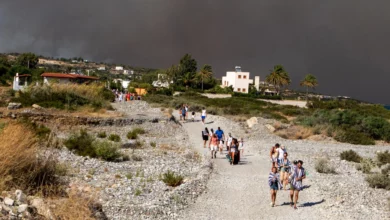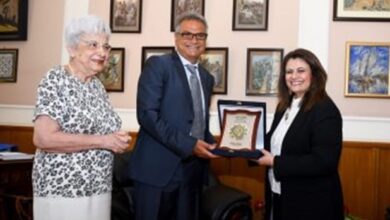
Greece is expected to be given the green light early next week for what could add up to well over a billion euros of cheap aid and funding support from the European Bank for Reconstruction and Development, according to sources at the bank.
The former Greek government put in a request late last year to become an EBRD 'country of operation' and make it eligible for the development bank's support, but the process was put on hold during the uncertainty of the country's recent elections.
However this week's four-month Greek aid extension by the euro zone has put it back on track and EBRD sources said the bank's shareholders — 64 countries plus the European Union and European Investment Bank — were voting on the proposal on Friday.
An EBRD spokesman declined to comment but the sources who spoke to Reuters said approval was likely to come on the grounds that Greece would be classed as a "temporary" recipient of EBRD funds until up to around 2020.
That would be similar to the 500-700 million euro (362-508 million pounds), six-year plan given to Cyprus which became the first euro zone bailout country to get EBRD support last year. Since then the EBRD has taken a sizable stake in one of the country's strained banks.
"Yes,(Greece should get approval)," said one source who spoke on the condition of anonymity because of the sensitivity of the discussions. "But the challenge is to define the mandate in a sufficiently narrow way and to make it temporary like in the Cyprus case."
The biggest of the EBRD's shareholders are G7 governments who wield almost 60 percent of the voting power. For Greece to be approved, it needs backing from two-thirds of 66 shareholders and at least three-quarters of the overall voting power.
As in Cyprus's case, Greece is being helped considerably by the fact all 19 euro zone countries will vote as a bloc in favour of the plan, and it is also expected to get support from most of the G7 and other EU EBRD members.
For some of the bank's shareholders however the move into the euro zone's Mediterranean trouble spots departs from the EBRD's mandate.
The EBRD was created in 1991 originally to invest in the former Soviet bloc countries of eastern Europe to rebuild their economies and improve communist-era infrastructure.
And though it has expanded its reach in recent years to include Turkey, Mongolia and the economies affected directly or indirectly by the Arab Spring such as Morocco, Egypt, Tunisia and Jordan, some feel that any decision by the EBRD to invest in the world's most advanced currency bloc would stretch its remit.




